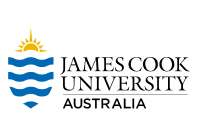Is an MBA with a specialisation better? This is a question that has been asked by many students contemplating whether or not to pursue an MBA in Australia. Knowing which route to take can be challenging with so many options available. Should you go for a general MBA, or should you specialise in a particular area of business?
The answer is straightforward - an MBA with a specialisation is better. A general MBA covers a broad range of topics, whereas a specialised MBA focuses on a specific area of business, such as marketing, finance, or human resources. By specialising, students gain in-depth knowledge and skills in their chosen field, making them more marketable and competitive in the job market.
But these are not the only benefits of pursuing an MBA with a specialisation. This article will dive deeper into the advantages of specialising in an MBA program in Australia.
So, without further ado, let's explore why an MBA with a specialisation is the way to go in Australia.
Quick Links To Master Of Business Administration Online Programs
RMIT
Master of Business Administration Online
- 2.7 years part-time. Reduced duration available
- $4,560 per course, FEE-HELP available
- Jan, Mar, May, July, Aug, Oct
Southern Cross University
Master of Business Administration Online
- 2 years part-time
- Jan, Mar, May, July, Aug, Oct
- $2,990 per unit, FEE-HELP available
UTS Online
Master of Business Administration Online
- 2 years (minimum)*, Part-time
- 12 subjects | 7-week study blocks
- $4,250 per subject**, FEE-HELP available
James Cook University
Master of Business Administration Global (MBA Online)
- $3,700 per subject , FEE-HELP is available
- 24 months, Part-time
- 12 (One subject per each 7-week study period)
Understanding MBA with Specialisation
A Master of Business Administration (MBA) with a Specialisation is a graduate degree that concentrates on a particular field of business, such as finance, marketing, human resource management, international business, or entrepreneurship, among other possible specialisations.
The programme is structured to give students a more in-depth understanding of the area of specialisation they have selected and to provide them with the information and abilities necessary to succeed in that industry.
Students who pursue an MBA with a Specialisation have the opportunity to participate in a more concentrated form of education, which is one of the program's key advantages. Students are allowed to go more deeply into the subjects that pique their interest and acquire an in-depth comprehension of the particular difficulties and opportunities that exist in the field of business they have selected. Because of this, they will have a better chance of standing out in a crowded job market, where companies frequently look for individuals who have specialised knowledge and abilities.
Getting a Master of Business Administration with a Specialisation is beneficial for a number of reasons, one of which is that it can lead to improved employment prospects in a certain field. Graduates that possess specialised knowledge and skills are in high demand by companies, particularly in fields such as finance, marketing, and international business. Also, they could be able to negotiate higher compensation than individuals who have earned an MBA in general.
An additional benefit of getting an MBA with a Specialisation is the opportunity to expand one's professional network. Students have the opportunity to network with others in their sector who share similar interests, participate in events and conferences hosted by their industry, and create a professional support system that can assist them in advancing their careers.
Yet, there are also certain drawbacks associated with pursuing a Master of Business Administration with a Specialisation. Students may not be exposed to a wider variety of business issues and may find it difficult to apply for positions that demand a wider variety of skills or knowledge in other fields of business.
This is one of the primary drawbacks, as it can have a narrow scope. A Master of Business Administration (MBA) with a Specialisation programme may cost more than a regular MBA programme, and it may restrict a student's ability to advance their career in other fields.
Why Choose Australia for MBA Specialisation?
Students from all over the world want to study in Australia because the country has an education system that is among the best in the world, good facilities, and a diverse culture. Australia is home to several of the world's top universities, each of which provides students with access to an extensive curriculum and a variety of academic degrees in various disciplines.
The teaching staffs at Australia's universities are among the most experienced and best qualified in the world, allowing them to deliver a comprehensive educational experience to their students. Australian university students have ample opportunities to get practical experience through internships and work placements. These opportunities are provided by the universities.
In addition, Australia provides a multicultural setting, which enables students to engage in conversation with people hailing from a variety of cultural traditions and teaches them about those traditions.
The students walk away from this experience with a fresh point of view, which will serve them well in both their personal and professional lives. Because of its reputation for being a friendly and secure place to live, Australia is quickly becoming one of the most popular study-abroad destinations in the world.
Advantages of Pursuing an MBA with Specialisation
Students can benefit in a variety of ways by pursuing a Master of Business Administration with a Specialisation. Many of these benefits include the following:
- An MBA with Specialisation allows students to concentrate their studies on a particular aspect of business, allowing them to delve more deeply into the subjects of particular interest to them. They may have an advantage over other applicants thanks to their specialised expertise.
- Graduates that possess specialised knowledge and skills are in great demand by employers, particularly in fields such as finance, marketing, and international business. This is because such graduates offer better chances for career advancement. Obtaining a Master of Business Administration (MBA) with a specialisation in a certain field might open doors to better career opportunities and higher salaries in that field.
- Networking opportunities: Obtaining an MBA with a Specialisation can provide the opportunity for networking with other individuals working in the same field who share similar interests and goals. Students can participate in industry events and conferences, connecting with prospective employers and developing a professional network that can assist them in advancing their careers.
- Students who pursue an MBA with a specialisation can acquire a sense of personal growth and achievement while simultaneously becoming experts in a particular topic through the use of this educational option. This has the potential to contribute to enhanced self-esteem and confidence.
- Students are able to personalise their education to meet their individual personal and professional requirements when they enrol in MBA programmes that provide specialisation because of the flexibility they provide in terms of course options and scheduling.
- Entrepreneurial opportunities: An MBA with a specialisation in entrepreneurship can help students develop the skills and knowledge necessary to create their own enterprises, which can be a fulfilling and lucrative career path for individuals who choose to pursue it.
Students who are interested in a particular area of business and who wish to acquire the information and abilities necessary to thrive in that industry may find that pursuing an MBA with a Specialisation is a wise investment.
Disadvantages of Pursuing an MBA with Specialisation
There are a lot of positive aspects to obtaining a Master of Business Administration with a Specialisation, but you should also think about the potential negative aspects. A few examples of these drawbacks are as follows:
- When students pursue an MBA with a specialisation, there is a possibility that they may not be introduced to a wider variety of business-related subjects, which can restrict the program's overall breadth. Because of this, their ability to advance their careers may be hindered, and it may be more challenging for them to apply for jobs that demand a wider variety of skills or knowledge in other fields of business.
- The cost may be higher for students who wish to pursue an MBA with Specialisation as opposed to a normal MBA programme due to the possibility that they may be required to pay additional fees for specialised courses and materials.
- The pursuit of an MBA with a specialisation can restrict a student's ability to further their career in other fields. This is because potential employers may view the student as overly specialised and may not consider them for positions outside their area of expertise.
- Changing career interests: Pursuing an MBA with Specialisation may limit a student's ability to change their career interests later on, as they may become too specialised in a particular field to transition to a different area of business. This is because an MBA with Specialisation prepares students to become experts in that field.
- Students who are pursuing an MBA with a Specialisation may not be exposed to a diverse range of perspectives and ideas because they may be studying inside a specialised subfield of business. This may be the case because of the nature of the Specialisation. Because of this, they may have less ability to think creatively and come up with original answers to difficult challenges.
Before selecting a choice, it is essential for students to give thorough consideration to both the potential benefits and drawbacks of pursuing a Master of Business Administration with a Specialisation.
They need to weigh the advantages of having specialised knowledge and abilities against the potential drawbacks of having a more limited scope for learning and fewer opportunities for career advancement. In the end, an individual's ambitions and professional aspirations should serve as the primary factor in determining whether or not they should pursue an MBA with a Specialisation.
Popular MBA Specialisations in Australia
International students who want to study an MBA with a specialisation often choose to do so in Australia because it is a popular destination. The nation is well-known for providing students with a vast selection of MBA specialisations to choose from in order to fulfil their numerous professional goals. The following are some of the most common areas of specialisation for MBA students in Australia:
1. Finance
One of the most sought-after academic programmes in Australia is a Master of Business Administration (MBA) with a specialisation in finance. Students will get the information and abilities necessary to flourish in the areas of financial management, investment analysis, and portfolio management by participating in this programme. Students that choose to focus their studies in this area will get knowledge in areas such as financial markets, risk management, mergers and acquisitions, and other topics in this field.
2. Marketing
Students who are interested in acquiring a more in-depth understanding of the marketing landscape are the target audience for an MBA programme that specialises in Marketing.
This programme gives students the opportunity to take classes in subjects such as brand management, consumer behaviour, market research, digital marketing, and other relevant topics. Students who choose to focus their studies in this area will acquire knowledge in market segmentation, advertising, public relations, and other essential facets of marketing.
3. Human Resource Management
Students interested in developing their knowledge in human resource management in organisations are the target audience for a Master of Business Administration degree with a specialisation in the field.
This programme gives students the opportunity to take classes in a variety of relevant topics, including employee relations, recruiting and selection, training and development, and more. Students who choose to concentrate in this area will acquire knowledge in the areas of law, ethics, and business strategy pertaining to human resource management.
4. Entrepreneurship
MBA programmes that offer a specialisation in Entrepreneurship are tailored to meet the educational needs of students who aspire to either launch their own company or find employment in the rapidly growing start-up sector.
This programme provides training in a variety of relevant topics, including marketing, developing business plans, obtaining funding, and ideation, among others. Students who choose to focus their studies in this area will acquire the knowledge, abilities, and tactics necessary to launch and cultivate a thriving enterprise.
5. Information Technology
Those who are interested in working in the field of information technology can consider pursuing a Master of Business Administration degree with a specialisation in Information Technology.
This curriculum gives students the opportunity to take classes in a variety of relevant topics, including business analysis, project management, software engineering, and others. Students who choose to specialise in this area will acquire the knowledge necessary to be successful in the information technology industry, as well as the most recent technologies and trends in the field.
These are some of the most common areas of specialisation for MBA students in Australia. Before making a choice based on their career objectives, interests, and goals, students should conduct in-depth research and analysis of each specialisation available to them.
Top Universities in Australia for MBA Specialisation
1. The Australian National University (ANU)
MBA programmes can be specialised in a variety of areas, including international business, finance, and entrepreneurship, at Australia's Australian National University (ANU), which is widely regarded as one of the country's most prestigious educational institutions. Students are exposed to a variety of cultures thanks to the university's varied student body, which also serves as an effective teaching tool.
2. The University of Melbourne
The University of Melbourne, located in Australia, is a well-regarded educational institution that gives students the opportunity to specialise in their Master of Business Administration degrees in a variety of areas, including management, marketing, and finance.
Because the university's faculty members have such impressive credentials, the educational opportunities available to students are exceptional. Also, the institution maintains links with a variety of businesses, which makes it possible for students to obtain many opportunities to gain practical experience.
3. The University of Sydney
MBA programmes at the University of Sydney can be specialised in various areas, including international business, marketing, and entrepreneurship, making it one of the most prestigious educational institutions in Australia. Students are exposed to a variety of cultures thanks to the university's varied student body, which also serves as an effective teaching tool.
4. The University of New South Wales (UNSW)
The University of New South Wales (UNSW) is a highly regarded institution of higher education in Australia that provides MBA programmes with specialisations in entrepreneurship, finance, and marketing.
Because the teaching staff at this university is so knowledgeable and has so much expertise, they are able to give their students an exceptional educational experience. Students at UNSW have sufficient possibilities to obtain practical experience thanks to relationships that the university has formed with a number of different businesses.
5. The University of Queensland (UQ)
The University of Queensland (UQ) is a prestigious educational institution in Australia that is known for its Master of Business Administration (MBA) programmes that focus on business management, marketing, and finance. The institution places a significant emphasis on research, and as a result, it offers students the chance to take part in research projects and acquire valuable hands-on experience.
6. Monash University
The acclaimed Monash University in Australia is home to a business school that gives students the opportunity to specialise in their Master of Business Administration degrees in a variety of areas, including international business, marketing, and entrepreneurship.
Because the university's faculty members have such impressive credentials, the educational opportunities available to students are exceptional. Also, the institution maintains links with a variety of businesses, which makes it possible for students to obtain many opportunities to gain practical experience.
7. The University of Western Australia (UWA)
The University of Western Australia (UWA) is a highly regarded educational institution in Australia that provides MBA programmes with specialisations in management, finance, and marketing, respectively.
The institution places a significant emphasis on research, and as a result, it offers students the chance to take part in research projects and acquire valuable hands-on experience. The University of Western Australia also has connections with a number of different businesses, which allows students to obtain experience in the real world.
8. The University of Adelaide
The University of Adelaide is a renowned educational institution in Australia that provides students with the opportunity to specialise in their Master of Business Administration degrees in a variety of areas, including international business, marketing, and entrepreneurship. Because the teaching staff at this university is so knowledgeable and has so much expertise, they are able to give their students an exceptional educational experience.
These prestigious universities in Australia provide students with an exceptional educational experience by delivering high-quality education, outstanding facilities, and a cultural environment that is rich in diversity. Students can realise their ambitions for their future careers and find success in their chosen professions if they attend an educational institution that is congruent with those goals.
How to Choose the Right University for MBA Specialisation?
The decision of which university to attend in order to specialise in MBA studies is an important one that can have a big effect on a student's future opportunities in the workforce. The following is a list of considerations that students need to make when selecting an appropriate university to pursue their MBA specialisation:
1. Accreditation
When selecting an institution for an MBA specialisation, accreditation is one of the most important aspects to take into consideration. A university receives accreditation if it can demonstrate that it maintains the highest academic standards and offers students an education of the best possible calibre. Students should check that the college or university they attend meets the requirements for accreditation set forth by organisations such as AACSB, AMBA, or EQUIS before enrolling there.
2. Faculty
When selecting an institution for an MBA specialisation, the faculty is yet another important aspect to take into consideration. Students should do research on the qualifications and expertise of the faculty members in their chosen field of specialisation in order to make an informed decision about which academic programme to enrol in. Students can benefit from an outstanding educational experience and be assisted in the pursuit of their professional objectives with the assistance of a faculty that is both highly trained and experienced.
3. Curriculum
When selecting an institution for an MBA specialisation, the curriculum is one of the most important aspects to take into consideration. It is important for students to do research on the university's course structure, as well as the electives and specialities that are available. Students can be helped to acquire the knowledge and skills necessary to flourish in their respective industries by following a curriculum that has been thoughtfully crafted and is aligned with the career goals of the student.
4. Industry Partnerships
Partnerships with members of the industry are essential for acquiring hands-on experience and expanding one's professional sphere of influence. Students need to do research on the university's affiliations with various industries, as well as the options available for getting hands-on experience, internships, and job placements.
5. Location
When choosing an institution to specialise in MBA programmes, location is one of the most crucial considerations to make. The location of a person's home can have an effect on the cost of living, the number of work options available, and the cultural experience they have. Students need to do research on the location of the university and think about the elements that could affect both their academic and personal lives because of the location.
6. Alumni Network
The alumni network has the potential to be an extremely useful resource for both the development of a profession and for networking. Students should conduct research on the alumni network of the university and think about the success stories of other alumni in the field of specialisation that they have selected.
Students can choose the appropriate university for an MBA specialisation that is in line with their career goals, delivers a high-quality education, and gives possibilities for practical experience and professional development by taking into consideration the aforementioned elements.
Conclusion
In conclusion, for individuals who are interested in enhancing their professional possibilities in Australia, obtaining an MBA that includes a specialisation could prove to be a prudent move. Those who possess specialised expertise and abilities are in high demand in the country due to the robust economy and competitive employment market.
Obtaining a Master of Business Administration (MBA) degree that focuses on a particular area of study can provide you with the specialised knowledge you need to achieve success in that area of study as well as provide you with an advantage in the job market.
An MBA with a specialisation can help you gain advanced knowledge and abilities by providing you with a deeper grasp of your chosen profession, whether that sector is marketing, finance, or human resources.
An MBA can provide you with these benefits. In addition, the MBA programme provides participants with the opportunity to network with industry professionals and hands-on experience, both of which can be extremely beneficial while seeking employment in the highly competitive labour market of Australia.
Have you given any thought to earning a Master of Business Administration degree with a specialisation in order to improve your chances of finding work in Australia? In today's competitive employment market, which of the following specialisations do you believe would be most beneficial? Share your thoughts with us in the section below!
Content Summary
- The answer is straightforward - an MBA with a specialisation is better.
- A Master of Business Administration (MBA) with a Specialisation is a graduate degree that concentrates on a particular field of business, such as finance, marketing, human resource management, international business, or entrepreneurship, among other possible specialisations.
- Students who pursue an MBA with a Specialisation have the opportunity to participate in a more concentrated form of education, which is one of the program's key advantages.
- An additional benefit of getting an MBA with a Specialisation is the opportunity to expand one's professional network.
- Yet, there are also certain drawbacks associated with pursuing a Master of Business Administration with a Specialisation.
- A Master of Business Administration (MBA) with a Specialisation programme may cost more than a regular MBA programme, and it may restrict a student's ability to advance their career in other fields.
- Students from all over the world want to study in Australia because the country has an education system that is among the best in the world, has good facilities, and diverse culture.
- Students can benefit in a variety of ways by pursuing a Master of Business Administration with a Specialisation.
- Obtaining a Master of Business Administration (MBA) with a specialisation in a certain field might open doors to better career opportunities and higher salaries in that field.
- Obtaining an MBA with a Specialisation can provide the opportunity for networking with other individuals working in the same field who share similar interests and goals.
- There are a lot of positive aspects to obtaining a Master of Business Administration with a Specialisation, but you should also think about the potential negative aspects.
- The pursuit of an MBA with a specialisation can restrict a student's ability to further their career in other fields.
- Changing career interests: Pursuing an MBA with Specialisation may limit a student's ability to change their career interests later on, as they may become too specialised in a particular field to transition to a different area of business.
- Before selecting a choice, it is essential for students to give thorough consideration to both the potential benefits and drawbacks of pursuing a Master of Business Administration with a Specialisation.
- They need to weigh the advantages of having specialised knowledge and abilities against the potential drawbacks of having a more limited scope for learning and fewer opportunities for career advancement.
- In the end, an individual's ambitions and professional aspirations should serve as the primary factor in determining whether or not they should pursue an MBA with a Specialisation.
- International students who want to study an MBA with a specialisation often choose to do so in Australia because it is a popular destination.
- One of Australia's most sought-after academic programmes is a Master of Business Administration (MBA) with a specialisation in finance.
- Students who are interested in acquiring a more in-depth understanding of the marketing landscape are the target audience for an MBA programme that specialises in Marketing.
- Students interested in developing their knowledge in human resource management in organisations are the target audience for a Master of Business Administration degree with a specialisation in the field.
- Before making a choice based on their career objectives, interests, and goals, students should conduct in-depth research and analysis of each specialisation available to them.
- MBA programmes at the University of Sydney can be specialised in a variety of areas, including international business, marketing, and entrepreneurship, making it one of the most prestigious educational institutions in all of Australia.
- The University of New South Wales (UNSW) is a highly regarded institution of higher education in Australia that provides MBA programmes with specialisations in entrepreneurship, finance, and marketing.
- The University of Adelaide is a renowned educational institution in Australia that provides students with the opportunity to specialise their Master of Business Administration degrees in a variety of areas, including international business, marketing, and entrepreneurship.
- When selecting an institution for an MBA specialisation, accreditation is one of the most important aspects to take into consideration.
- Students should do research on the qualifications and expertise of the faculty members in their chosen field of specialisation in order to make an informed decision about which academic programme to enrol in.
- It is important for students to research the university's course structure, as well as the available electives and specialities.
- When choosing an institution to specialise in MBA programmes, location is one of the most crucial considerations to make.
- The alumni network has the potential to be an extremely useful resource for both the development of a profession and for networking.
- Students should research the university's alumni network and think about the success stories of other alumni in the field of specialisation they have selected.
- Students can choose the appropriate university for an MBA specialisation that is in line with their career goals, delivers a high-quality education, and gives possibilities for practical experience and professional development by taking into consideration the elements mentioned above.
- In conclusion, for individuals interested in enhancing their professional possibilities in Australia, obtaining an MBA that includes a specialisation is prudent.
- Obtaining a Master of Business Administration (MBA) degree that focuses on a particular area of study can provide you with the specialised knowledge you need to succeed in that area of study and provide you with an advantage in the job market.
- An MBA with a specialisation can help you gain advanced knowledge and abilities by providing you with a deeper grasp of your chosen profession, whether that sector is marketing, finance, or human resources.
- In addition, the MBA programme provides participants with the opportunity to network with industry professionals and hands-on experience, both of which can be extremely beneficial while seeking employment in Australia's highly competitive labour market.
FAQs
No, a general MBA degree can also provide students with the skills and knowledge necessary to succeed in business.
An MBA with Specialisation usually takes one to two years to complete.
Switching careers after completing an MBA with Specialisation may be challenging, especially if the specialisation is in a specific field.
Yes, many universities and government bodies in Australia offer scholarships and grants to international students pursuing MBA with Specialisation programs.
Finance and marketing are among Australia's most popular MBA specialisations, but their popularity can vary depending on the current industry trends and demands.







